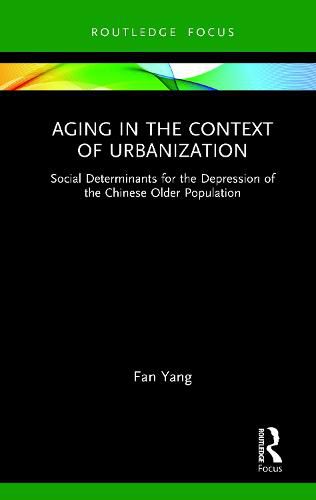Readings Newsletter
Become a Readings Member to make your shopping experience even easier.
Sign in or sign up for free!
You’re not far away from qualifying for FREE standard shipping within Australia
You’ve qualified for FREE standard shipping within Australia
The cart is loading…






As China has undergone rapid urbanization and population aging in the past few decades, improving the welfare of older people in rural areas has become an ever more pressing issue. This title is the first book-length work to examine the influence of urbanization on the mental health of China’s older population outside the city.
Incorporating the theoretical framework of social ecology, the author analyzes the socio-cultural factors that have exerted an impact on participants’ mental health, such as their personal life course transition, changes to family living arrangements and community restructuring. Moreover, he introduces several elderly mental health intervention models in China, while evaluating the policy initiatives that have developed based on China’s local resource sufficiency, cultural customs, and older people’s needs. The research findings not only facilitate a deeper understanding of China’s welfare policy making, but also offers a useful reference for countries that are experiencing similar urbanization and population aging and that wish to formulate better social policies.
Students and scholars of social policy, welfare, and gerontology will find this title to be essential reading.
$9.00 standard shipping within Australia
FREE standard shipping within Australia for orders over $100.00
Express & International shipping calculated at checkout
As China has undergone rapid urbanization and population aging in the past few decades, improving the welfare of older people in rural areas has become an ever more pressing issue. This title is the first book-length work to examine the influence of urbanization on the mental health of China’s older population outside the city.
Incorporating the theoretical framework of social ecology, the author analyzes the socio-cultural factors that have exerted an impact on participants’ mental health, such as their personal life course transition, changes to family living arrangements and community restructuring. Moreover, he introduces several elderly mental health intervention models in China, while evaluating the policy initiatives that have developed based on China’s local resource sufficiency, cultural customs, and older people’s needs. The research findings not only facilitate a deeper understanding of China’s welfare policy making, but also offers a useful reference for countries that are experiencing similar urbanization and population aging and that wish to formulate better social policies.
Students and scholars of social policy, welfare, and gerontology will find this title to be essential reading.